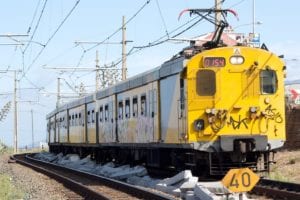The Railway Safety Regulator (RSR) on Wednesday said that it had not received any official report of hijacking incidents taking place despite the fact that this is now a growing problem around the country.
The RSR said it noted with concern the claims made by the United National Transport Union and Passenger Rail Agency of South Africa’s (PRASA) subsequent response regarding Metrorail train hijackings. “To date, the events in question have not been reported officially by PRASA to the RSR. It is the responsibility of operators to report railway occurrences and incidents to the RSR. The reporting of security incidents to the RSR by the railway operators is provided for in the South African National Standards (SANS 3000-1:2009 Edition 2 under SANS Category 4 – Hijacking of trains),” explained spokesperson Madelein Williams.Last reported hijacking in 2012
According to Williams the last train hijacking was reported to the RSR in January 2012. “Our records show that the driver of a Metrorail train was threatened with a knife by two males who boarded the train at Duff’s Road in KwaZulu-Natal at 20h50, forcing him to drive to Phoenix which was not his original route. On arrival at Phoenix, the driver applied the emergency brake and jumped off the train. The two males also got off the train at Phoenix and fled.” The United National Transport Union lifted the lid on rail hijackings on Tuesday calling for increased security on and around passenger trains following an increase in trains being hijacked by angry commuters and staff and passengers being robbed.








